How to bust stress in just a few minutes per day
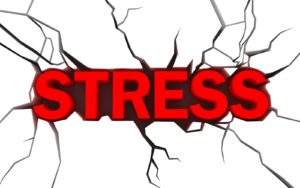 “This tai chi breathing is like a drug”, one of my students said.
“This tai chi breathing is like a drug”, one of my students said.
“In what way?” I asked.
“It is fast acting, enjoyable and like taking both an ‘upper’ and ‘downer’ together.”
I didn’t want to delve into his drug taking history at that point. Instead, I asked him to describe the effect tai chi breathing had on him.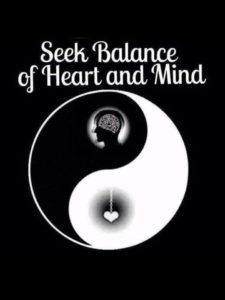
“When I’m tired or down, it lifts me. When I’m over-hyped and stressed, it calms me. When I do it, I feel very satisfied.”
Tai chi and tai chi breathing is satisfying. It’s considered a ‘wonder drug’ to manage stress, as it can give you the gift of balance and harmony.
So, how does it work? Firstly, we need to get our heads around what stress is and what it does to us.
Stress can be a good thing
It is a biological necessity. Back in the ‘dawn of time’ survival stress was our saviour – flooding our bodies with hormones and energy so we could fight or take flight. This was great stuff for a chance encounter with a sabre-tooth tiger or when hunting mammoths.
However, most of us can now get our protein on demand at the supermarket. Our need for survival stress has declined but, unlike the mammoths, it has not become extinct. It’s there whenever we need it, which is a good thing as danger still lurks in the 21st Century. We could still have a chance encounter with a Reliant Sabre or other speeding car as we cross a busy street. If so, our ‘flight’ reactions to leap out of the way will be life saving.
When stress goes bad
‘B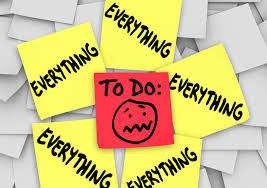 ad stress’ grips you into a strangle hold when you work too hard and for over-extended periods of time – whether at work, home or school. Examples are: constant long hours on the job, noise, crowding, worry, having to rush, meet impossible deadlines and respond to constant demands, all with not enough time for rest, sleep and relaxation.
ad stress’ grips you into a strangle hold when you work too hard and for over-extended periods of time – whether at work, home or school. Examples are: constant long hours on the job, noise, crowding, worry, having to rush, meet impossible deadlines and respond to constant demands, all with not enough time for rest, sleep and relaxation.
This kind of stress fools your body to think it is under attack, so it tries to be helpful by changing to a state of readiness. This is not harmless like switching your mobile phone to ‘flight mode’. Instead, your setting for flight (and fight) causes your body to release a rush of hormones and chemicals, such as adrenaline and cortisol, and divert blood to where it is needed, like your muscles.This is what is called the sympathetic nervous system in action, which makes you breathe faster with a pounding heart. Your body needs this for ‘flight’ or ‘fight’ and a healthy person easily copes with it in occasional bursts.
When stress happens constantly, such as every day and for most of the day, you might not be panting for breath. But, a tsunami of hormones and chemicals are still rampaging through your body, some are raising your sugar and blood pressure levels, so to be ready for flight (or fight). Your other functions, such as digestion and brain activity, suffer as they get less blood to work. If you can’t balance this over-reacting sympathetic nervous system then, even if you have good health, the ‘trolls’ start taking over: indigestion, diabetes, stomach ulcers, high blood pressure, migraine, anxiety, exhaustion …etc
Enter the cavalry, the parasympathetic nervous system and it tries to right the imbalance. This is sometimes called the ‘rest and digest system’ or ‘the relaxation response”. It has a calming effect by slowing the heart rate and the breathing. It also increases digestion and relaxes the internal muscles to help stop those anxious ‘butterflies’ in your stomach and that gut-churning feeling in your abdomen.
But due to the over-stimulated sympathetic nervous system, more help is usually needed.
And the n a hero comes along… no, not Mariah Carey … but tai chi.
n a hero comes along… no, not Mariah Carey … but tai chi.
Tai chi is an ancient, Chinese martial art and exercise that involves a series of movements performed in a mindful, focussed manner and accompanied by deep breathing. Some see it as a meditation, some as a good exercise you do in the park, others as an easy way to relax.
The slow, continuous, gentle movements of tai chi, the deep abdominal breathing and the tranquil mind further activate and support the parasympathetic nervous system. This is why tai chi lifts you up when you’re down or tired and calms you when you’re hyper. It helps your body to return to a balanced state, which is sometimes called the Yin and Yang effect
Tai chi is not an ‘upper’ or a ‘downer’ and nor is it like taking both together, even if some people interpret it as that. It is suitable for all ages and gentle on your joints.
 Dr Paul Lam of the Tai Chi for Health Institute says, “Tai chi is based on nature. Its gentle flowing movements contain an inner power which strengthens the body and mind. Those who practice tai chi become like a tree or river, calm on the outside, but full of internal strength, more capable of withstanding whatever life may throw their way“.
Dr Paul Lam of the Tai Chi for Health Institute says, “Tai chi is based on nature. Its gentle flowing movements contain an inner power which strengthens the body and mind. Those who practice tai chi become like a tree or river, calm on the outside, but full of internal strength, more capable of withstanding whatever life may throw their way“.
Just 4-6 minutes of tai chi or tai chi breathing per day can make a big difference to your health and fitness. You can do this anywhere, anytime. A regular, daily set-time is good to build your strength (both body and mind) and to help quell the ‘trolls’. More is better, of course. Make a start by doing tai chi or tai chi breathing every day, even if you have limited time or ability.
Want to try tai chi breathing right now? Try this short tai chi breathing exercise to reduce stress with Jocelyn Watkin. You can do this while seated or standing at home, in the workplace or elsewhere.
As well as your daily sessions, you can also do extra tai chi or tai chi breathing whenever you need it. You don’t need to rush to the gym or park and nor do you need to find a quiet, dark space. You can do tai chi right where you happen to be. You don’t need special clothes, fancy shoes or expensive equipment and you can do it indoors or outside. It is ‘like a drug’ but there are ‘no nasty chemicals’ or bad side effects.
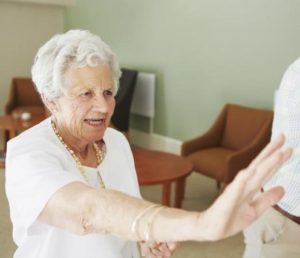
Tai chi makes you feel like a hero lives within you
Dr Lam says, “Hour for hour, practising a Tai Chi for Health programme is probably the most effective exercise to improve health and wellbeing. You can start and continue to progress to higher levels no matter what your age or physical condition”.
Tai chi and tai chi breathing will give you a quiet, inner strength that helps you to take back control of your life. It will make you feel that a hero definitely lives within you.
By Jocelyn Watkin, 2017 ©. Jocelyn has trained in martial arts for over 20 years and has focussed solely on tai chi since 2003. She is a board-certified, premier instructor for the Tai Chi for Health Institute. You can find out more about her here.
————————————————————
Want to know more about how tai chi can help you to bust stress, get fit and feel better about life, the universe and everything? Say kia ora (hello) to my monthly e-newsletter, which has more tai chi well-being and fitness revelations, plus ideas and inspiration to boost that hero within you.
Contact me to request my e-newsletter or scroll up and look to the upper right of this page to directly sign up for it. I promise not to spam you or sell your email address, even if I’m offered $1,000,000.
More information
- What tai chi can do for you
- Try this short tai chi exercise to reduce stress
- More about the health benefits of tai chi
- Find a Tai Chi for Health board-certified instructor near you
- How to turn good stress into your ‘best friend’ and be more productive
- Dr Herbert Benson (cardiologist, professor of mind/body medicine at Harvard Medical School) talks about the basics of ‘the relaxation response’ and how you can do it.
- More about Jocelyn Watkin (writer of this article and a premier tai chi instructor)
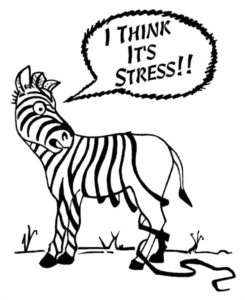
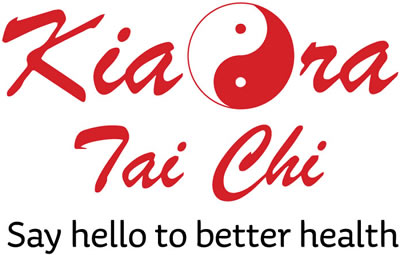
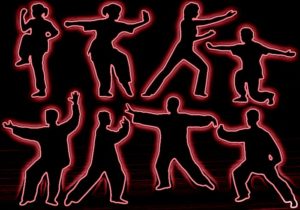 Please note: This is a post from 2017
Please note: This is a post from 2017 ntle on your joints. Jocelyn and some of her students will then demonstrate the tai chi form so you can see what it looks like. After that, you can have a go for yourself and learn the first few steps.In just one class, you’ll be doing tai chi. By summer, you could be doing a full tai chi set of moves on the beach.
ntle on your joints. Jocelyn and some of her students will then demonstrate the tai chi form so you can see what it looks like. After that, you can have a go for yourself and learn the first few steps.In just one class, you’ll be doing tai chi. By summer, you could be doing a full tai chi set of moves on the beach.